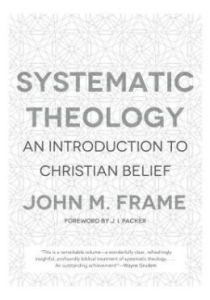Original Article by Pastor Kevin Carson
Have you chosen yet? Are you with those who stand or those who kneel?
Whether or not you have personally chosen, most of your friends have taken a side.
And here’s the problem: as we take sides, the great divide in America gets larger and larger.
Regardless of which side you are on, there are two problems. First, you stand or kneel out of your passion. Second, your passion miscommunicates with the other side who are either standing or kneeling. The result – the great divide just gets greater and deeper.
- The Background: During the 2016 football season, Colin Kaepernick, who played for the San Fransisco 49ers, began sitting then kneeling during the national anthem. He stated, “”I am not going to stand up to show pride in a flag for a country that oppresses black people and people of color. To me, this is bigger than football and it would be selfish on my part to look the other way. There are bodies in the street and people getting paid leave and getting away with murder. … I have to stand up for people that are oppressed.” On the heels of several nationally debated police shootings of black people with the civil unrest that ensued, he decided to show support and solidarity for black people as those who experience injustice. Kaepernick is biracial.
- The Meaning: For Kaepernick and those who kneel with him, the purpose of kneeling is to peacefully protest the plight of black people in America. In the land of the free and the home of the brave, thousands of Americans are afraid of the police, the justice system, and their neighbors. Parents worry about whether or not their children will be racially profiled, harassed, or even shot by the police. Just as you, the blog reader, have an experience of America, so does everyone else – including black people in communities all over America. Their experience of America in regard to opportunities for education and advancement, personal safety and welfare, and community stories of abuse become the filter through which they see the flag, sense pride for the country, and feel the injustice.
- The Purpose: The goal of the protest is to get a conversation started across America on issues of injustice, especially as it relates to race. Those players in the NFL who decide to kneel during the national anthem desire to get the attention of the American people. They respect the freedom they have and choose to kneel with one another in solidarity during the anthem to highlight what they perceive is a real problem in America, as Alejandro Villanueva of the Pittsburg Steelers explained in his news conference on Monday.
- The Problem: Where the NFL players desire to highlight an issue in order to start a discussion, many Americans perceive their kneeling as disrespectful to America and the veterans who have made their protest possible. They miss the entire purpose of the protest. Instead, what they see is a bunch of spoiled millionaires choosing to disrespect their country, their flag, and their freedom by kneeling during the national anthem. The symbolism of the protest (kneeling) is lost to them because of their personal offense regarding the flag.
- The Challenge: How do you help each of the sides listen to the other? There are two sides: one group publicly declaring their solidarity against abuse and another side proudly defending their flag. Here is where the challenge lies. Both groups then assume the wrong motive for the other. Consider the perception of both groups related to the “other” side: if you kneel, then you must not love America or appreciate your freedom; and if you stand, then you must be a racist. At this point, both groups are offended and the conversation is over. For instance: If your standing makes me feel like you do not care about racial injustice, then why would I want to dialog with a racist? You are just part of the problem. Your offense to my kneeling is proof-positive that you have the problem. However… If your kneeling makes me perceive you are a traitor to the American veteran, have no respect for the flag, nor any appreciation for your freedom, then I have determined you are not worthy of a conversation. Instead, I want you to get up and shut up. At this point, there is no conversation.
- The NFL: The NFL is an entertainment business. As such, they have determined to allow their employees, the players, to protest peacefully on the sidelines or in the locker room during the national anthem. For this reason, many have determined they will protest this business decision by boycotting all things NFL. As a business, the NFL has every right to stand with the players, their employees, and speak against all forms of real and perceived injustice. As a business, they also will have to live with those who may misunderstand their decision and choose to walk away from their business.
- The President: Unfortunately, the President of the United States Donald Trump determined to give his opinion regarding NFL players kneeling. Rather than speak with wisdom, he chose to curse and throw gas rather than light on the problem. His attitude and words were sinful. In this instance, he is wrong. He should be working toward a national solution to these real and perceived injustices rather than fanning the flames of division.
- The Christian: As Christians, we appreciate both concerns. We hate injustice, racism, and sin. Anywhere and everywhere there is prejudice or partiality, it is wrong (James 2:1-13). In Christ, we do not see people according to the color of their skin (Colossians 3:11). In Christ, we love and care for people as Christ (Ephesians 4:28-5:2). We also are grateful for the blessings God gives to us, especially our freedom through government (Romans 13:1-7). Freedom provides us the opportunity to share the Gospel openly and worship as we choose. We are grateful for the sacrifice of those who have provided this freedom and have lived sacrificially, even giving their own lives. So we identify with both groups. We loudly proclaim we hate injustice as God does. We also loudly proclaim we see our freedom and the sacrifices made to provide for it as great blessings and grace from God. To back away from either stance would be sinful on our part.
- The Solution: We must then embrace both sides. We cannot afford to wrap ourselves so tightly in respect of the flag that we miss what others are trying to help us see. We cannot be so American that we forget to be Christian. We cannot support racism of any type. We must encourage brothers and sisters in Christ to engage each other, neighbors, and, in many instances, strangers in positive ways that encourage conversation and dialogue. We must be examples of those who live without seeing the color of people’s skin. We must assume the best motive for the person with whom we engage. At the same time, we also need to demonstrate our appreciation of and respect for the freedom we have to protest in America. Our gratitude toward our country must be great, as our country is God’s blessing to us. We furthermore need to be grateful for the peaceful protest and stand against non-peaceful protest. We must be Christ and live Christ first. We must live worthy of the Gospel of Jesus Christ, as those who understand true freedom in Christ, true racial equality, true love, and true compassion. We must empathize with any and all people who suffer misfortune, injustice, and inequality.
- The Hope: May God grant us help as we seek to move forward as a Christians and as a nation. I’m not sure what will be enough for the players to stop kneeling. The end game is not apparent. I wish there was a better medium to discuss this than to wrap it in the flag or a game – both of which hinders the real conversation. Reality is – that’s not the case. The chosen medium by the players cannot distract us from the greater conversation that is necessary in society. We must address issues of injustice. As a nation there are many ways we can do this, and I certainly do not pretend to have the magic combination. However, the national solution is not the most important one. The best solution begins with you. You begin to see people with charity. Choose to find ways to demonstrate the love of Christ to those around you and in your community who need it. Be careful what you say and assume on social media. Be slow to be offended and quick to forgive. Assume patriotism from a fellow citizen and seek to listen to what they are saying. Try not to unnecessarily poke your neighbor in the eye. Get to know your neighbor better. Take advantage of this opportunity to think, love, speak, and act like Christ.
The great divide will only get greater unless Christians are willing to lead through words and deeds to change it.














